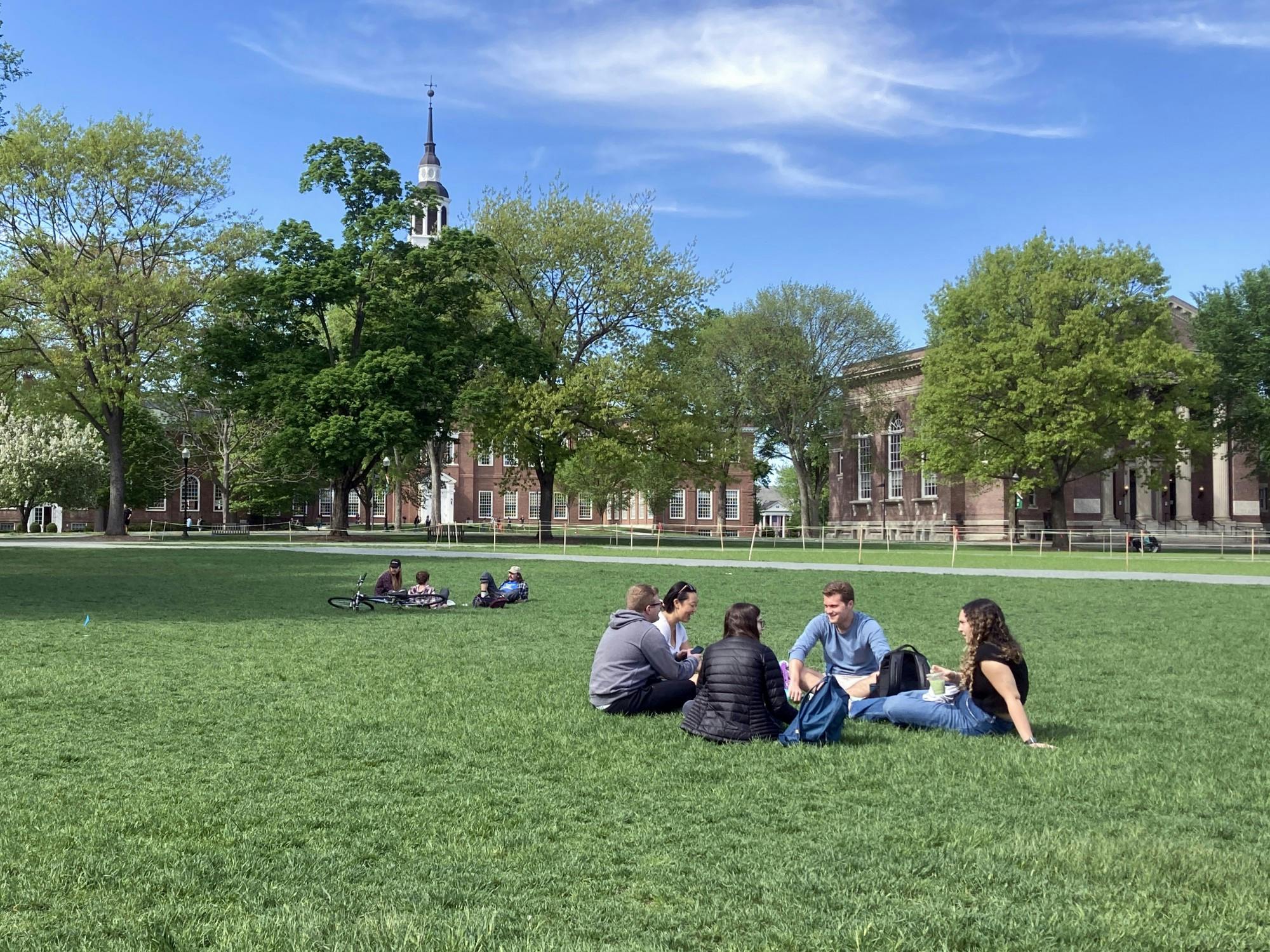From May 12 to May 16, the Upper Valley experienced a surprise heatwave, with an average daytime high of 86 degrees Fahrenheit and a peak of 91 degrees Fahrenheit on May 14. During the heatwave, Residential Operations received numerous complaints from students who were dismayed by the lack of air conditioning on campus.
On May 12, Residential Operations sent an email to campus, in which they acknowledged the heat and recommended students open their windows or use a fan.
Goutham Veeramachaneni ’25 said that last week’s heatwave was similar to his experience attending high school in Rajasthan, India, where Veeramachaneni said that temperatures often exceeded 42 degrees Celsius, or approximately 107 degrees Fahrenheit. While Veeramachaneni said the heat in India “was never a problem” indoors — as all the buildings had large fans — he added “that does not seem to be the case” at the College.
Living within the McLaughlin Cluster, Veeramachaneni also said that while the air conditioning in his dorm had been on at the start of fall term, it has yet to be turned on this term.
“I just find it very strange that while a lot of the buildings are air conditioned now, like [Baker-Berry Library] and [the Hopkins Center for the Arts], they are treating the residential spaces differently,” he said. “It just seems to be a way to avoid costs.”
Ellie Rudnick ’23 added that “some [members of the Interhouse Council] have said the reason they don’t turn the air conditioning on is an equity issue, since not all dorms have it.”
Due to the lack of air conditioning on campus, students have had to get creative with solutions to the heat.
“I got a fan and left my window open, but I also saw someone sleeping outside in a sleeping bag in the courtyard of McLaughlin,” Veeramachaneni said.
Rudnick added that she and her friends attempted to combat the heat by swimming in the Connecticut River during the weekend and remaining in air-conditioned indoor spaces.
Even with measures to combat the heat, heightened temperatures pose risks to student health.
Director of nursing Lauri Gallimore wrote in an email statement that headache, confusion, nausea, dizziness, body temperature above 103 degrees Fahrenheit and loss of consciousness are all common symptoms of heatstroke.
Gallimore added that a heatstroke is a “severe medical emergency” that can be fatal if neglected. She wrote that, in case of heatstroke, witnesses should call 911 or bring the patient to a hospital, move the victim to a cooler environment and reduce body temperature with cool cloths or baths.
If heat indexes are below the high 90s, victims may also be cooled with a fan. At temperatures above the high 90s, fans may make the victim hotter, Gallimore said.
Executive director of Dartmouth Emergency Services Kelly Rutherford ’23 said that concerns for heatstroke and heat exhaustion should not be taken lightly and shared how these conditions can be prevented.
“The core advice to prevent heatstroke and heat exhaustion is making sure that you are hydrating with water and that if you feel you are spending a lot of time in the sun that you seek shade and go indoors,” Rutherford said.
Gallimore also said that students should stay well-hydrated, stay cool, apply sunscreen and call Safety and Security in case of an emergency.
While Rutherford could not share whether Dartmouth EMS has responded to heatstroke emergencies this year, she said the team has responded to heatstroke emergencies in the past.
“This is the time of year in Hanover when we see more heatstroke emergencies,” Rutherford added.
Although Rudnick did not seek medical attention for heat-related ailments this weekend, she noted that she felt sick after staying in Occom Commons in the McLaughlin Cluster without air conditioning for too long.
“I was in a meeting for three and a half hours, and I became very nauseous and dizzy, presumably from the heat,” Rudnick said. “We were in a building that has air conditioning, but it wasn’t turned on, and it was super hot in there.”
Beyond health issues, some students cited several issues with heightened temperatures, including sleep loss, discomfort and disruptions to their daily routines and social lives.
“I pretty much don’t stay at my dorm anymore,” Veeramachaneni said. “I’ve been going to the library or The Hop not just to study but even just to live there. It’s like a sauna in my room.”
Rudnick said that the heat made staying in fraternities for too long an “unbearable” experience.
“Going out this past weekend was definitely really hot, despite it being night,” she said. “Some frats had air conditioning in their basement and other places, but we were only staying inside for a certain amount of time and then heading outside to get some fresh air.”
With several outdoor Green Key events this weekend, there remains further potential for heat-related medical issues — especially with a high of 93 degrees Fahrenheit forecast for Saturday, according to Weather.com. Rutherford said Dartmouth EMS will be providing 24/7 coverage from Wednesday night through Sunday morning.
Residential Operations did not respond to requests for comment by the time of publication.




